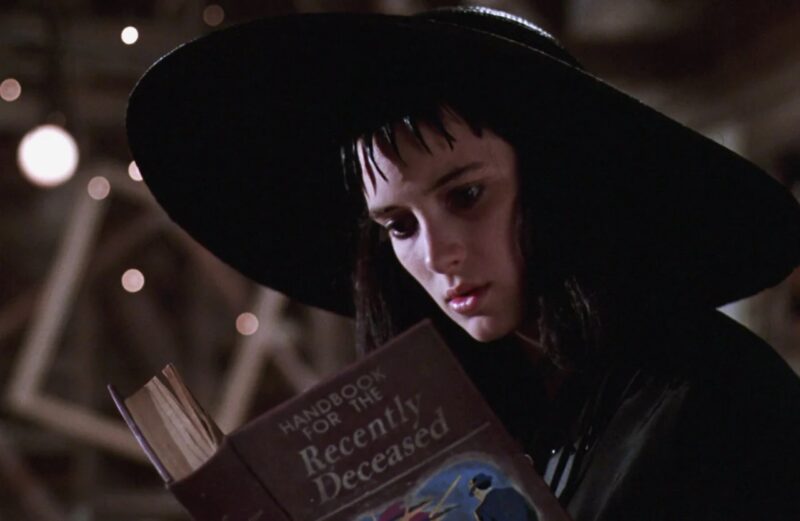September 4, 2024, 2:28pm
Beetlejuice was one of the weirder things to happen to 1988, an already weird year. Who but the mad king Tim Burton could have foreseen that throwing Harry Belafonte’s “Banana Boat,” Louise Bourgeois-derivative sculpture, peak Goth Winona, and a roided up, exhumed Michael Keaton into a centrifuge would spell both cult and box office success? At least one other guy, it turns out. The late horror novelist Michael McDowell.
The author of more than thirty books, Alabama native McDowell wrote the original draft of the Beetlejuice screenplay, and later drafted an early version of The Nightmare Before Christmas. His many fans included Stephen King. Which makes sense, the deeper into his dark mind you go.
McDowell’s original Beetlejuice was a more straightforward horror story. The Maitlands’ death by auto-capsize was rendered in gnarly detail. In early drafts, Lydia Deetz (i.e., Winona) was initially slated to die in a fire. And the chaos agent shilling hope for the hopeless was also more malevolent. Beetlejuice had violent designs on Lydia, and a B plot involved her avoiding his creepy advances.
Though all this is a little hard to swallow given the eventual tone Beetlejuice settled on, the story’s persistent oddities can be chalked up to the author’s pulp fixation. McDowell cut his plot teeth on unambiguous creepfests like The Amulet, the six volume Blackwater saga, and a gruesome Southern Gothic called The Elementals. Most of his plot lines would fit cozily on a a whiteboard in The X Files‘ writers room. Perhaps notwithstanding the four queer detective novels he published under the joint pseudonym, “Nathan Aldyne.”
And this is only the tip of the iceberg. It may not surprise you to learn that the mind that brought us the ur-corpse trickster was about as enamored of death as the child he would have combusted. Described by friends as “an expert in death customs,” McDowell wrote a Ph.D. on “American Attitudes Towards Death, 1825-1865.” And he spent years amassing a collection of various occult artifacts.
Emphasis on a mass.
McDowell’s 76 box trove includes scrapbooks, photos, and clippings from “various funeral…and dissection scenes.” Some ephemera comes from Curley Fikes, an Alabama-based coroner who moonlit as a photographer of the dead. The collection also includes medical ledgers, like the self explanatory “Account of the Number of Persons that have Died in the Year 1744, Medfield.”
How do I know this? Because the Michael McDowell Death Collection is currently on view at Northwestern University, standing in testament to the late writer’s life-long fixation.
This Friday, the dead will rise again in a much-heralded sequel to the cult film. So let us pour one out for Michael McDowell, and his weird, weird vision.
